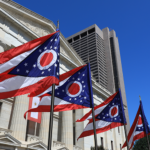On a straight, party-line vote, Democrats in the House Labor and Workforce Development Committee on Friday approved legislation that would essentially turn the responsibility for setting prevailing wage rates over to the state’s labor unions.
The bill, House Bill 2527, would do away with the requirement that prevailing wage rates be determined by a survey and simply use existing collective bargaining agreements where such agreements exist – which is just about everywhere.
Prevailing wage rates refer to the rate state and local governments are required to pay for contract labor on public works projects. Created in the 1930s, the prevailing wages were intended as a way to keep tax dollars local by preventing out-of-state contractors from under-bidding local companies for construction work.
Opponents, however, say taxpayers wind up paying far more than they would if they could seek competitive bids.
Currently, the rate is determined by conducting a survey of local contractors – both union and non-union – and requesting collective bargaining information from local labor organizations in specific job categories. The different numbers are then averaged together to arrive at a rate of pay that’s neither too high nor too low for a given community.
Under HB-2527, however, the rate would be calculated solely by “adopting the hourly wage, usual benefits and overtime pay established in collective bargaining agreements for those trades and occupations that have prevailing wage agreements.”
In short, where there is a union, the wage its members earn becomes the prevailing wage.
Rep. Timm Ormsby (D-Spokane), the bill’s author, said it was a result of a Republican-sponsored listening tour last fall to determine why public works projects in Washington state routinely cost several times more here than in other states.
“Instead of relying on all manner of surveys and other methods to determine the prevailing wage, this simply says that the free-market, for-profit collective bargaining wage becomes the standard,” he said. “It’s the time-honored method for establishing the true value of labor.”
Rep. Leonard Christian (R-Spokane Valley), speaking for the GOP committee members who voted against the bill, strongly disagreed.
“In this day and age where information is easy to obtain over the Internet, you’re just cherry-picking the numbers you want,” he said. “This is a solid ‘no’ for us.”
The bill will now move to the House floor, but there is no virtually no chance the Republican-led Majority Coalition in the Senate will follow suit.











